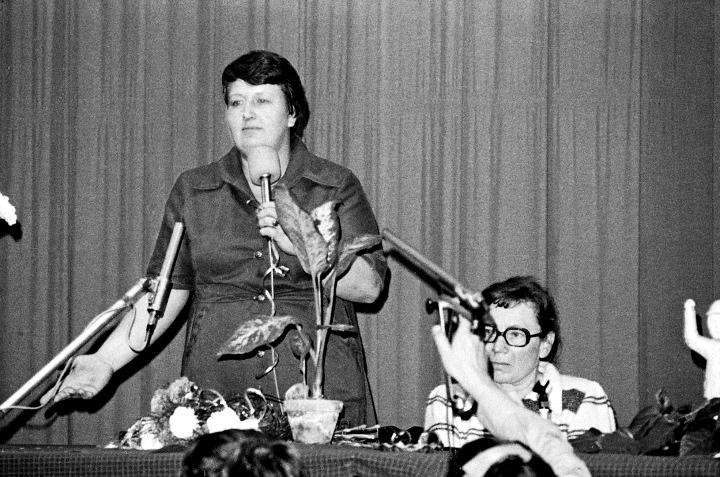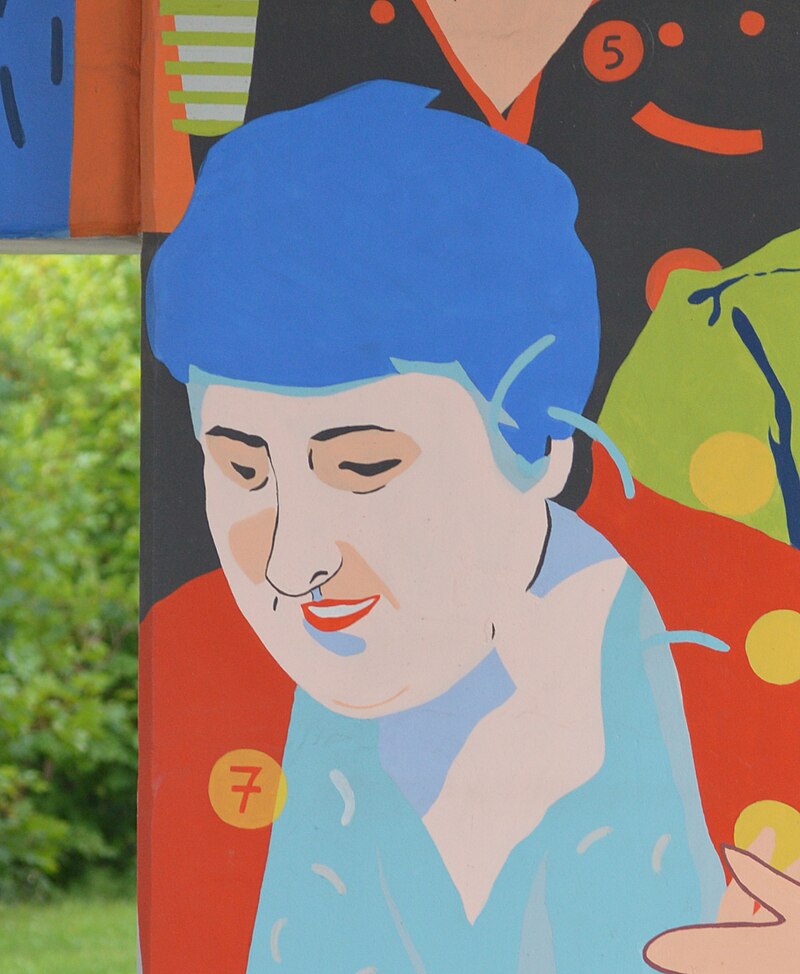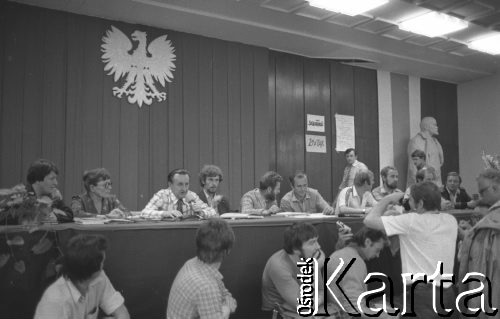This tram isn’t going any further
One thing that most certainly influenced her future activities was the fact that she gained most of her professional experience during the years of economic downturn in the second half of the 1970s. At the time she had already gotten copies of the underground journal Robotnik, but she did not consider becoming involved in the opposition movement because she felt responsible for her mother and her younger sister.
In August 1980 she joined the strike of the Coast public transport system. Henryka herself has said that, at the time, she did not know much about politics and was still wet behind the ears when it came to those issues. On 15 August 1980, 27 years old Henryka Krzywonos-Strycharska stopped the no. 15 tram that she was driving near the Baltic Opera in Gdańsk. This event is often described as the beginning of the public transport system strike in Gdańsk that took place during the August events, even though, in fact, bus drivers had already started the sit-down strike earlier, after four o’clock in the morning. When Henryka Krzywonos stopped her tram, she went on to say the sentence that would later become famous:
“This tram isn’t going any further. We’ve stopped because the shipyard has also stopped.”
As she recalls in her interviews, she was very afraid of the passengers’ reaction. She was driving labourers to work, and nurses to the medical university. To her surprise, however, people started to clap and everyone supported her decision to go on strike. She found that reaction very empowering, and it made her feel certain that she had done the right thing. Other trams started to line up behind her tram. Workers of the Voivodeship Public Transport Enterprise (WPK) and the Motor Transport Company (PKS) decided to establish the headquarters of their joint strike at the bus depot on Karl Marx street, where the sit-down strike of bus drivers had been ongoing since the morning. One day later on 16 August, when an agreement with the management was singed at the Gdańsk Shipyard and Lech Wałęsa announced the end of the strike, together with Anna Walentynowicz and Alina Pieńkowska, Henryka urged shipyard workers to continue with the solidarity strike to support the demands of other enterprises.




